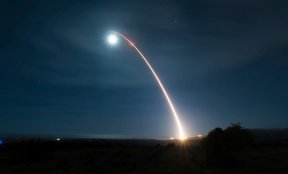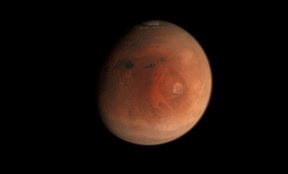There’s been talk over the last few years about a lunar base called the ILRS (or the International Lunar Research Station). It would be built near the south pole of the Moon, with additional outposts near the lunar equator and a space station orbiting overhead. The idea is that the whole thing would eventually support a long-term human presence. Since they'll need entertainment (and, I guess, some way to communicate with Earth), there’ll be internet, as well as rovers that can be used to get around outside and see the sights. The whole thing will be powered by solar, radioisotope and nuclear generators, the construction of which should be complete around 2036.
This all sounds very exciting, and it is, but the notable, if not unexpected, omission from the International Lunar Research Station is the US. This is all being led by China and Russia, with 17 other countries and organisations also signed on so far. That puts the spotlight on the US, who've had their own lunar ambitions for years. There's Gateway, the lunar space station launching in 2027 (ahem). But then there's Donald J. Trump. His latest proposed budget wants to cancel Gateway entirely, even though many of the space station modules, including the habitation module, have already been built and are currently being tested. That said, Gateway is so long delayed and over budget that the original goals set for the mission no longer make a lot of sense. I'm certainly not suggesting that cancelling it at this point is a good idea, but there is a rational conversation to be had on how to get the most out of the mission now.
Anyway, science is really just a race first and foremost in the minds of the US administration, and the goal is simply to win. Win what, you ask? Well, we define the game after the fact. If the US builds the first permanent outpost on the Moon, that was the goal. If not, then the goal was Mars. Either way, we'll always have Apollo.
I won't be at all surprised if China completes the ILRS on schedule, and I expect them to achieve their milestone of landing astronauts on the Moon by 2030. Russia on the other hand, well, they are a little preoccupied at the moment, and Roscosmos may not be the most reliable partner. But I also have my doubts over the US and the Artemis program. Artemis III, planned to be the first crewed lunar landing since Apollo 17, is still supposed to launch in 2027, but what with budgetary issues and Starship's propensity to explode mid-flight, I just don't know.
It will be fascinating to watch. If nothing else, it will show that political will is just as important now to space exploration as it was during the Apollo era.


